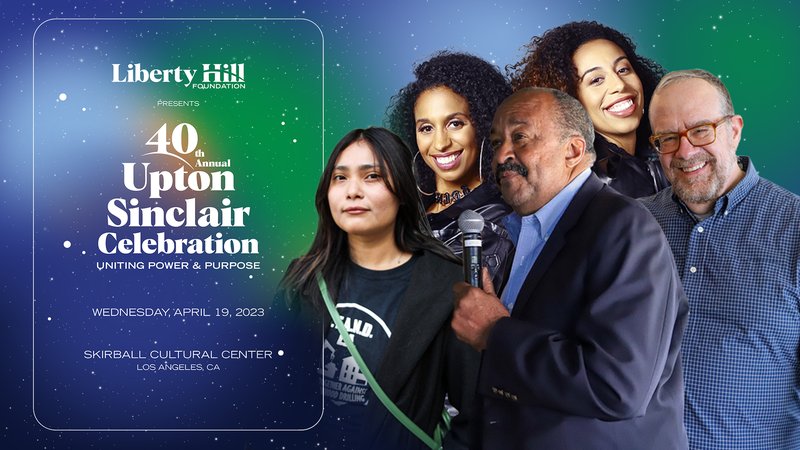Weston Milliken
Founders Award
Weston Milliken came from conservative stock. His father, Roger, helped convince Barry Goldwater to run for president and by the end of his life had attended more national Republican conventions than nearly any other living delegate.
"This fruit fell far from that tree,” Weston likes to say. And we’re sure glad he did, because Weston has been a model and inspiration for his approach to philanthropy—from his work in the American South, where his family wealth originated—to his work with the LGBTQ community in Los Angeles through Liberty Hill.
Weston could hardly be more different from his dad, but he says he also learned a lot from him—his strategic discipline, integrity, firm principles, strong values, and deep loyalty to his family, his businesses, and the nonprofits he helped start.
Weston is proudly involved as a shareholder in the family textile and chemical business, Milliken & Company, which is committed to environmental sustainability and diversity, and is regularly ranked as an ethical company and great place to work.
Weston came out after graduating from college, just before the AIDS epidemic decimated the gay community in San Francisco, where he moved. He volunteered with one of the first ministries in the Episcopal Church that supported the lesbian and gay community. Serving on The Parsonage’s board, Weston got interested in the dynamics of working together in groups to accomplish common goals.
After getting an MBA, Weston went on to earn a Ph.D. in human and organizational development where he studied friendship circles that support members in creating what they want to accomplish in their lives.
Those two strands from Weston’s life—strategic discipline and friendship circles—are woven together in his philanthropy.
Weston co-founded the Queer Youth Fund, the first donor circle at Liberty Hill, which made $5.2 million in grants between 2003 and 2014, with advice from queer youth activists. Weston donated $110,000 annually, and the fund became a model for giving circles where donors contribute according to their ability. “Even an entry-level donation to a giving circle, if given by a bunch of people can add up to grants that make a significant difference to organizations and movements,” he says. “And doing the work in a group helps you learn more about the issues you care about and how to become a better grantmaker.”
Weston is involved in a giving circle in his hometown of Spartanburg, South Carolina, in which he matches any funds raised by circle members. It has given out more than half a million dollars in grants to LGBTQ-serving organizations.
Weston has also been a key player in another giving circle that developed a “Southern strategy” for progressive grantmaking that is mindful of the continuing impacts of slavery, religiosity and highly relational culture of the American South.
Giving away at least half his income every year, Weston is an extremely generous philanthropist. We honor his generosity, discipline, commitment to giving circles, and strategic thinking.
